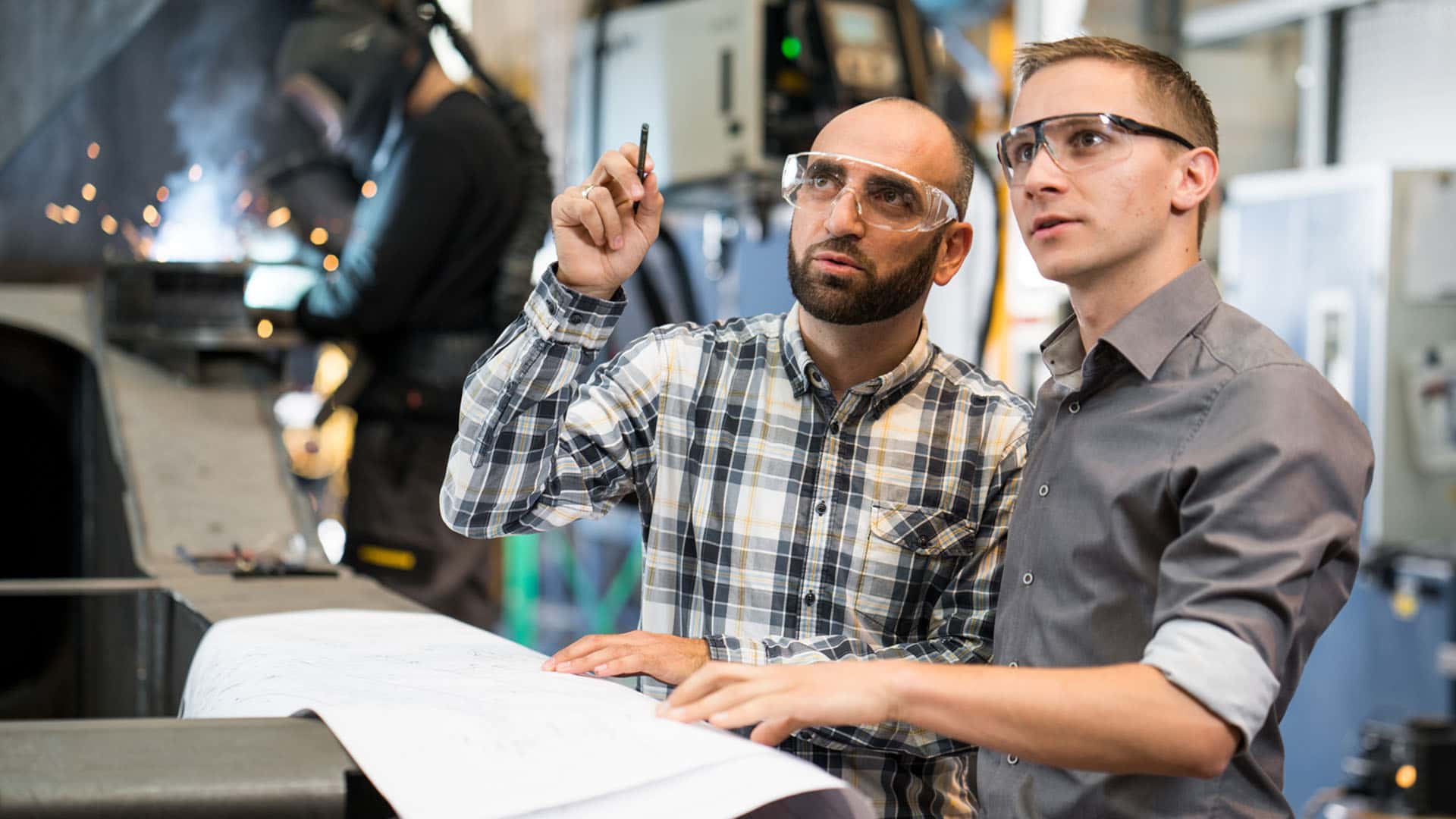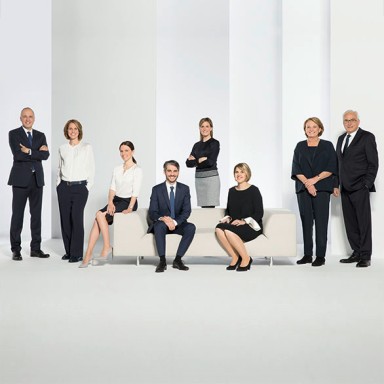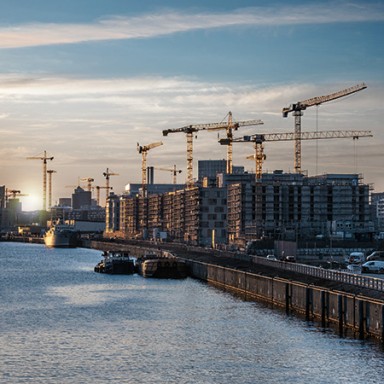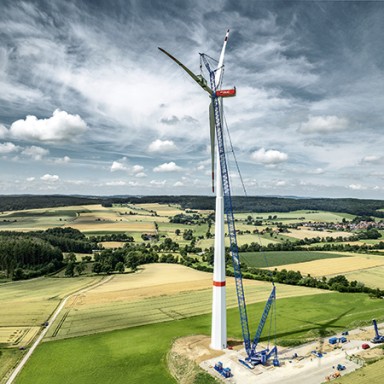 Group
GroupAnnual Report 2021
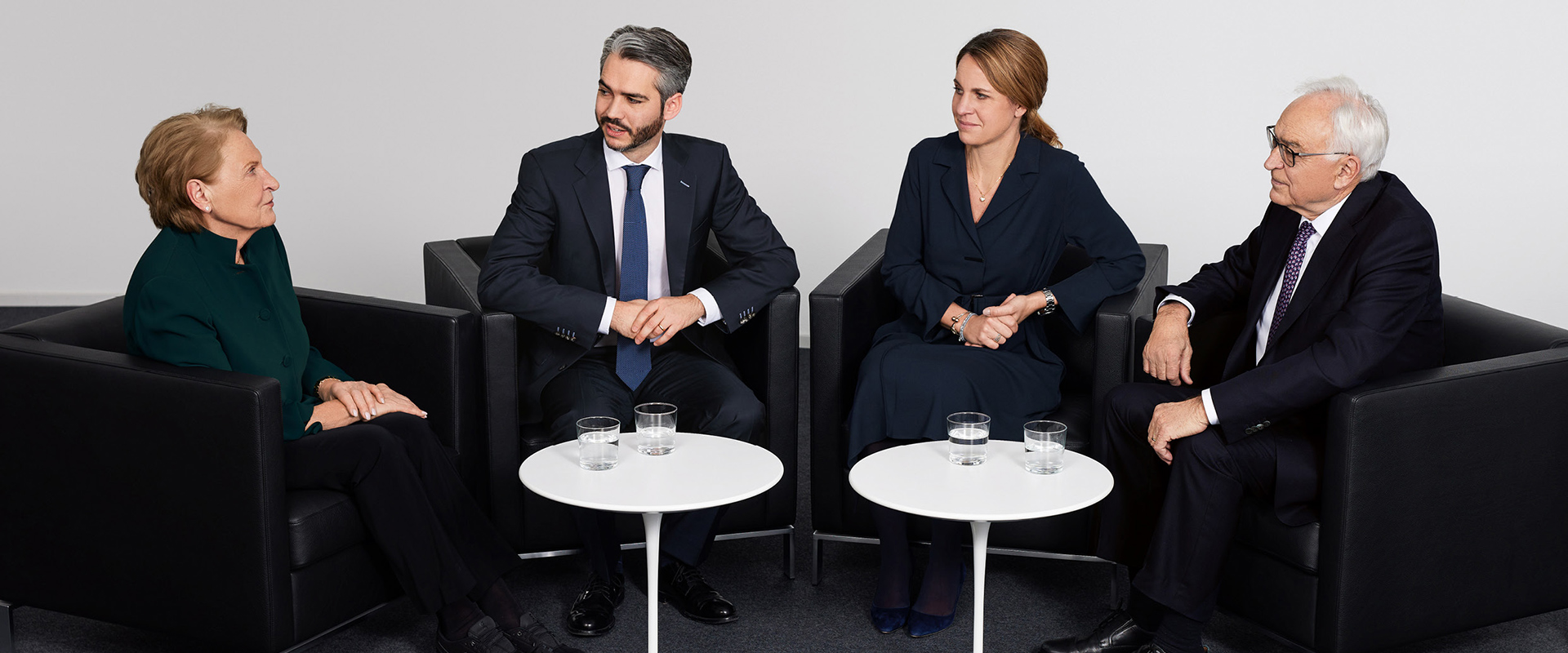
7 minutes reading time
Interview with the family shareholders
In conversation with Dr. h.c. Isolde Liebherr, Vice-President of the Administrative Board of Liebherr-International AG, Dr. h.c. Willi Liebherr, President of the Administrative Board of Liebherr AG, and Stéfanie Wohlfarth and Philipp Liebherr, members of the Administrative Board of Liebherr-International AG.
1
When we spoke last year, we talked about how the coronavirus pandemic had changed the world. Today – one year later – it feels like we’re at another pivotal moment in history. What are your thoughts on the war in Ukraine?
Isolde Liebherr: Above all, our hearts go out to the people of Ukraine and the many people who have been forced to flee their homes. And our deepest sympathies go to the families of those who have lost their lives.
Willi Liebherr: We are still hopeful that the fighting will end soon. Until recently, we never would have thought an escalation like this would be possible. It is inconceivable what is happening in Europe right now. It feels like something out of the distant past.
2
How is Liebherr taking action to support the people of Ukraine?
Stéfanie Wohlfarth: The war has created a devastating humanitarian crisis. That’s why we’ve decided to donate to the Swiss Red Cross, the UN Refugee Agency and other organisations. Our goal is to support these organisations in the work they are doing to help the people in the warzone, as well as those who have been displaced.
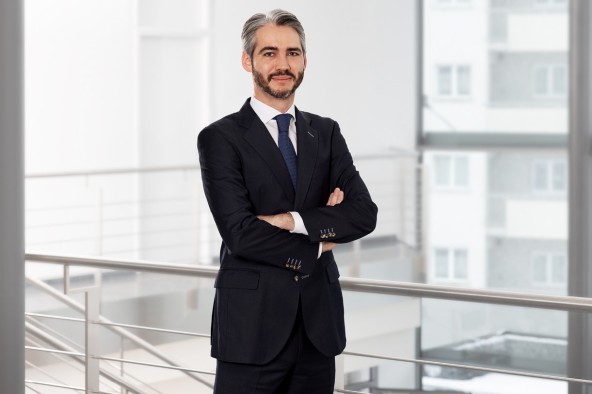
3
Tell us about Liebherr’s business interests in Ukraine and Russia.
Philipp Liebherr: In Ukraine, we work with long-standing trading partners who sell our construction machinery, refrigerators and freezers locally. We’ve been selling our products in Russia since 1965. Today, we operate two production facilities there, in the Nizhny Novgorod region, and a sales and service company that is headquartered in Moscow and has branches throughout the country.
4
How does the war impact Liebherr’s business in Russia?
Willi Liebherr: We’re observing and evaluating the situation in Ukraine and Russia on a daily basis. In recent weeks, our focus has been on making sure that our business activities in Russia are in line with the sanctions that have been imposed there. It’s hard to say how this will impact our business in the mid- to long-term, but we do expect significant economic consequences.
5
Do you expect the war to impact Liebherr’s business in other regions, too?
Isolde Liebherr: As far as we can tell at this moment, it’s still too soon to assess how it will affect us in detail. If you look at the predictions from various institutions, it seems clear that there will be consequences for the global economy and the financial markets. Those forecasts suggest that increased energy and commodity prices will drive inflation even higher. The sanctions imposed on Russia will also have a major impact. We started 2022 with plenty of new orders, so we are cautiously optimistic about the rest of this year, even in spite of the latest developments.
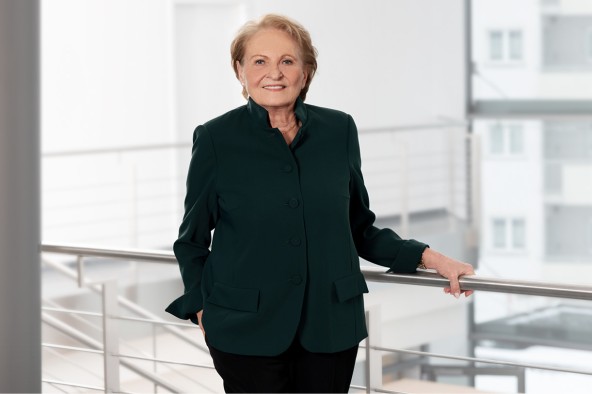
6
Of course, business takes a back seat in times like these, but we still want to look back on 2021 with you. What are your thoughts on how the company performed?
Willi Liebherr: Well, to begin with, it must be said that the global situation last year was not easy. The coronavirus pandemic continued to have a major impact on business until the first quarter of 2021. We kept moving forward, even whilst dealing with all the restrictions. Our priority was to keep our employees healthy and safe, and our customers satisfied. It was quite a challenge.
As soon as the global economy started to rebound in the second quarter, we were faced with bottlenecks in the global supply chains and rising procurement costs, as well as ongoing lockdowns and other pandemic-related restrictions in many regions. We not only managed to overcome all those challenges, we did it with flying colours.
Isolde Liebherr: Yes, absolutely. The company’s performance really speaks for itself. After taking a downturn in 2020, we reported revenues of € 11,639 million last year, which was nearly on a par with our record turnover in 2019. At the same time, we started increasing our investments again. Our workforce also grew compared to the year before. Now, nearly 50,000 people are working for Liebherr around the world. And at the end of the year, we had a very high order volume, which is very beneficial to us now.
7
The operating result also increased significantly, right?
Philipp Liebherr: Yes, the operating result is pleasingly good and a sign that business in our product segments has developed positively – albeit to varying degrees. In general, however, we are more than satisfied.
8
Tell us how the business is going in the various product segments.
Isolde Liebherr: With the exception of maritime cranes and gear technology and automation systems, turnover were up in all the product segments compared to 2020. Key industries like construction and mining made a strong recovery. So, the product segments that supply those industries benefited from an increase in sales. Our mobile crane business is booming right now, due in part to the high demand coming from the wind industry. This and the upturn in the construction industry have also had a positive effect on our components business. We’re also so glad to see that even our hard-hit aerospace area grew faster than originally expected.
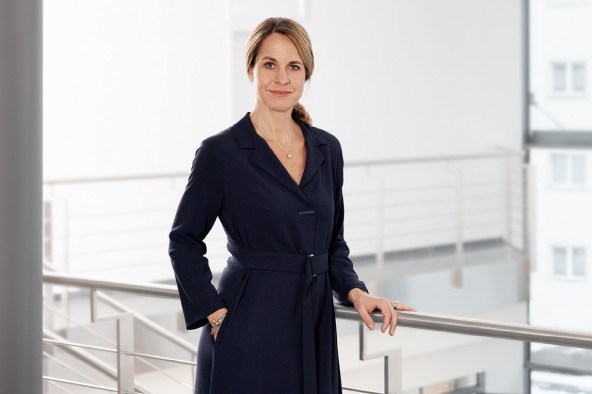
9
You mentioned supply chain bottlenecks, material shortages and rising procurement costs. How is Liebherr coping with challenges like these?
Willi Liebherr: The bottlenecks in global supply chains and material procurement were definitely some of the main challenges we faced last year. It’s been impossible at times to procure all the parts we need to finish our products – especially electronic components. On top of that, we’ve seen extreme price hikes in raw materials, electronics, steel, plastics, energy and elsewhere. It’s affected all our product segments to varying degrees and at different times. Especially when you consider the situation the world is currently facing, we think these issues are probably only going to get worse before they get better.
Stéfanie Wohlfarth: In the past, we’ve always enjoyed a stable supply chain thanks to our long-standing partnerships with suppliers and our own capacity to produce the parts we need. That’s still the case for the most part. But if the current situation does not improve in the medium term, we’ll make the necessary adjustments in each of our product segments and open up additional procurement channels. We’re already in a good position to do that, thanks to our multi-sourcing strategy, and that’s definitely an advantage. And we’ll keep doing everything we can to maintain a secure supply chain going forward.
10
What are some of the technological advances Liebherr made last year?
Philipp Liebherr: For one thing, we continued our work on alternative drive technologies. Our goal is to make our machines even more efficient and environmentally friendly. We also made progress in the field of digital solutions. These include technologies for intelligent networking, remote control and automation, as well as various digital services.
11
Can you give us a few examples?
Stéfanie Wohlfarth: We have created a networking and control option for our new range of built-in refrigerators and freezers, with new generations of the SmartDevice app and the SmartDeviceBox. We also launched a smartphone app that lets our customer service run diagnostics and perform maintenance on the new generation of appliances.
In our mining segment, we developed new machine automation and assistance systems. Our Trolley Guidance System automates various processes, such as steering mining trucks under the trolley line, or lifting and lowering the current collector.
Philipp Liebherr: Another example is our Remote Service app for crawler cranes, deep foundation machines and maritime cranes. It already offered real-time support and remote troubleshooting, but now we’ve added more service tools as well. We’re also continually developing new features for MyJobsite. This lets us provide the best possible support, to help our deep foundation engineering customers meet stricter requirements for collecting, displaying, analysing, managing and evaluating data.
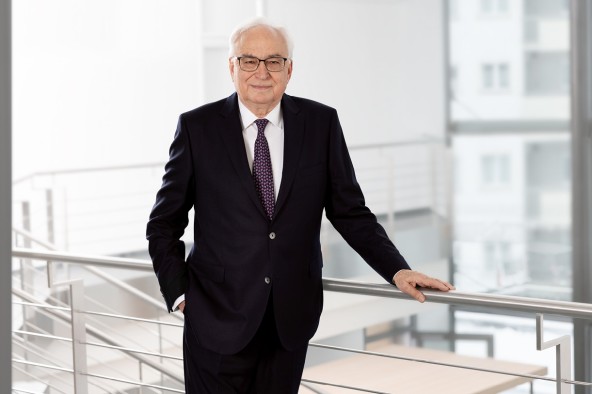
12
You mentioned the company’s goal of making drive systems more efficient and environmentally friendly. Can you tell us about the technologies Liebherr is focusing on?
Willi Liebherr: Our products are used around the world in all kinds of industries and many different settings. We have to meet many different requirements, which is part of the reason why we’re so open to embracing new technologies. When we talk about the energy transformation, our main focus right now is on electric engines, fuel cells, batteries, combustion engines or a combination in the form of hybrid drives. This enables us to take advantage of a wide range of energy sources. These include electrical energy, hydrogen, e-fuels such as ammonia and methanol, hydrotreated vegetable oils (HVO) or even fossil diesel in combination with the latest combustion engine and exhaust gas after-treatment technology.
13
What was your main focus in this area last year?
Philipp Liebherr: Among other things, we worked on solutions for hydrogen-powered combustion engines and their injection technologies, and approved several product lines for using hydrotreated vegetable oils (HVO), which are climate-neutral. Now, we’re even delivering products from several of our locations with HVO instead of fossil diesel as standard ex works. These include mobile cranes, earthmoving and material handling machines.
We’ve also expanded the ranges of our all-electric truck mixers, electric crawler excavators and battery-powered crawler cranes. An all-electric offshore crane is also under development. We’re also very proud of a new joint venture we’ve started with Airbus. We’ll be working with them to develop technologies for their 100% hydrogen-powered ZeroE aircraft.
Stéfanie Wohlfarth: If we talk about energy efficiency, it’s also important to mention our refrigerators and freezers. Last year, a new EU regulation went into effect, regarding the energy efficiency labelling of electronic appliances. We’re very proud that our appliances are still the most efficient, even after the change in labelling criteria.
From my perspective, Liebherr is contributing to a lower-emissions future by reducing the ecological footprint of our products, but it doesn’t stop there. We’re also active in industries that are enormously important for the energy transformation, such as the wind industry. Our cranes are used to install wind turbines, which also happen to contain our components. And our gear technology and automation systems product segment is helping promote e-mobility with its technologies.
14
A lot of the topics you’ve touched on relate to Liebherr’s corporate responsibility. That’s a topic that is becoming increasingly important – and much stricter – for many companies. What is Liebherr’s position when it comes to CR?
Isolde Liebherr: It’s something we take seriously. Our corporate responsibility has been one of our guiding principles and part of our core values for decades. It also guides the decisions we make as the company’s leaders. Our company’s structure is decentralised and diversified, so in the past we implemented many CR activities that focused separately on our individual product segments. We’ve also enacted CR policies that extend to the Group as a whole.
Stéfanie Wohlfarth: We’re currently in the process of developing an overall CR concept that will be fully embedded throughout our organisation. Based on this, we’ll start reporting on key CR-related topics across the entire Group. We expect to release our first company-wide CR report in 2024. By then, we hope we’ll be operating in a more stable market once again.
Thank you very much for sharing your thoughts.
This interview was conducted in March 2022.

